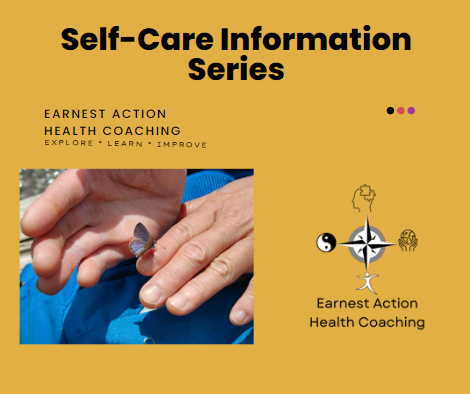Self-Care Information Series. The World Health Organization(WHO) defines self-care as, “Self-care is the ability of individuals, families and communities to promote health, prevent disease, maintain health, and cope with illness and disability with or without the support of a health worker.” For most people in the wellness and health professions we view self-care through the lens as those activities we engage in to preserve our ability to serve others by avoiding burnout. In this post and those to follow I’ll be exploring self-care interventions any person can consider to enhance one’s physical, mental, emotional, and spiritual well being. The objectives today are:
- To explain why self-care is important.
- Provide a little information about self-care interventions.
If you are interested, let’s get started.
Why Is Self-Care Important?
Costs
The cost of healthcare in the United States continues to grow. The Centers for Medicare % Medicaid National Health Expenditure Fact Sheet states that expenditures have risen 9.7% in 2020, 19.7 % of Gross Domestic Product. Self-Care are evidenced-based actions people can take to prevent disease and maintain health. For the most part the more we do to take care of ourselves the lower our costs will be. Of course, genetics and age are factors we cannot change. You may not be able to completely prevent a condition, however, using self monitoring like regular breast self-examinations can result in early detection.
Access to Essential health service
While costs are increasing, according to WHO 3.6 billion people in the world lack access to health services. In addition, by 2030 it is estimated that the shortage of health workers may grow to 15 million workers. On July 28, 2022 a US News article stated that the number of health care workers was down 1.1%. Think about how many hours a year you spend with your doctor? One hour or maybe 12 hours? The ability to research and implement self-care interventions can mean the difference between wellness and illness.
Reducing the Risk of Serious Conditions
Reducing risk factors of physical inactivity and tobacco use can prevent up to 81% of cardiovascular disease. Self-sampling for (human papilloma virus which causes cervical cancer) has reduced mortality from cervical cancer. Self monitoring of blood pressure earlier in life can bring awareness of the need for a physician’s intervention and motivate a person to make better lifestyle choices.
Overcoming Stigma.
In conclusion, as we all know the COVID 19 pandemic has increased the awareness of the need for mental health care. In many places a woman’s access to reproductive care is restricted. Annually access to self-injectable contraceptives can reduce 74 million women and girls living in low and middle income countries. Also HIV self-tests allow people to monitor for the virus in areas where going to a clinic for testing can open a person up to ridicule.
What are Self-Care Interventions?
In this section, I will describe some examples of interventions. First interventions are evidence-based actions a non-medical person can implement. We all know how difficult it is to discern a fad from fact. Quality and results must be proven. Since many of the evidence based initiatives target reproductive and sexual health and I feel those are out of scope of my practice, then I will not be addressing any of those topics. I will in coming posts discuss topics that align with the Global Self-Care Federation’s grouping. In the Self-Care Information Series we will discuss some of the following intervention groups.
- Making healthy lifestyle choices – physical activity and healthy eating, like the Mediterranean Diet, and emotional health
- Avoiding unhealthy activities – smoking and excessive alcohol and substance abuse.
- Self-recognition of symptoms – in collaboration with your physician track symptoms
- Self-monitoring – checking for deterioration. We’ll discuss topics like blood pressure monitoring and fitness trackers.
- Self-management- managing symptoms of diseases in partnership with physicians and others who may have the same condition. Diabetes management, prescription adherence, cardiovascular health.

Disclaimer. The information provided in this article may not be appropriate for all people. If you are not currently exercising or have or suspect you have conditions like cardiovascular, metabolic or renal disease, then you should consult your physician before considering making any changes suggested.

